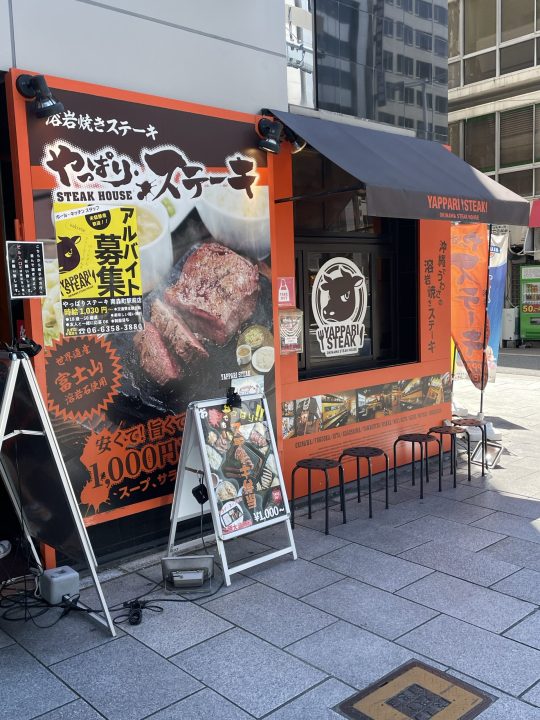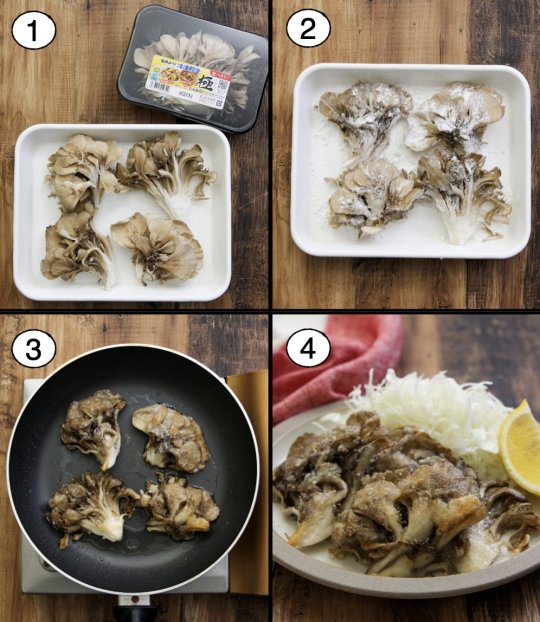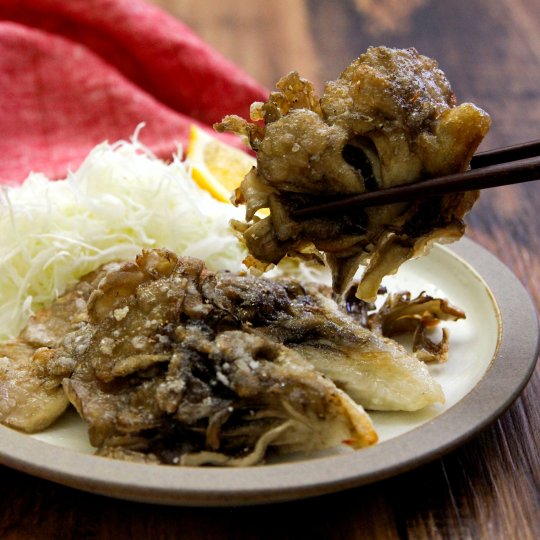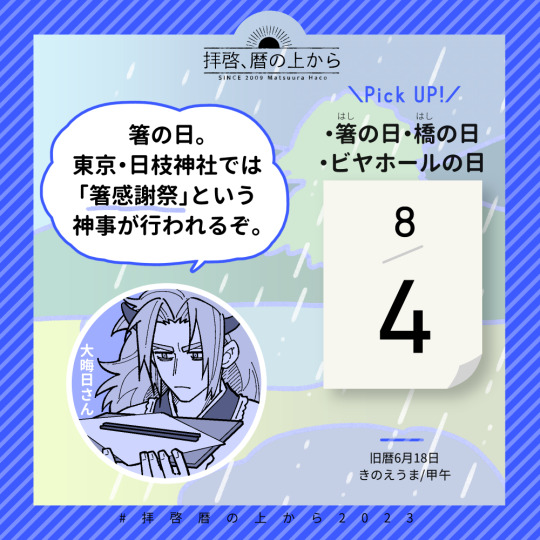#お箸
Explore tagged Tumblr posts
Text
2 notes
·
View notes
Text

コーヒー豆とお箸のサプライズプレゼント。
不思議な組み合わせだけど嬉しかった。
エチオピアゲイシャでラテにして頂きました!
ありがとう!
#絵日記#illustration#art#イラスト#子育て#絵#line drawing#線画#child care#picture diary#coffee time#coffee#コーヒー#珈琲焙煎#珈琲#コーヒーTime#お箸#コーヒー豆
17 notes
·
View notes
Text

営業中。台風の影響大きい地域、心配ですね。
開業前に若狭塗の職人さんを数人訪ねてヒアリングした時に、面白いネタを聞きました。
伝統工芸の職人としては4軒工房があり、模様の仕掛けの色の重ね順を見れば、どの家が塗ったか分かるというのです。
お互いに製造責任の明確化を相談してやっていたのが面白く感じたものです。
全部が全部ではないにしろ、例えば画像のお箸のように、量産する場合には、やる意味があります。
「前に買ったこれと同じものを」と言われたら「それはA工房ですよ、つなぎましょうか?」と伝えあう、協力してお客様への対応をする互助の精神。
裏を返すと、よその製品で文句を言われたら、私が作ったものではありませんと明言する証拠にもなったはず。
個人的に、この両面性を分かりながら互いに協力し合える関係性が、何だかスマートなやり方に思え、面白さを感じたものです。
当時訪ねた1軒は高齢の職人さん。息子さんが仕事を辞めて、跡継ぎ修行に戻ってきてくれることになったという話もしてくれました。
生きているうちに、「伝えてあげたいことがたくさんあるんです」と穏やかに話す言葉に、何だか愛を感じてウルッとしたのは内緒の秘密。
当店では津軽塗を販売しておりますが、津軽の唐塗もこんな模様。若狭の職人から技法が伝わり、津軽では津軽なりの改善進化の結果が現在の津軽塗になっていると聞いたことがあります。
自分が生まれて育った青森(津軽)と福井(越前、若狭)がこんなところでもご縁続きだったのかと知り、これも神様の引き合わせだったのかなと思ったものです。
若狭塗は金を蒔くのでお高いですが、見れば納得の美しさ。美術品の域です。お箸なら十分手が届く価格帯ですから、機会があれば、手に取って見ていただけたらと思います。
#大好きな漆 #若狭塗 #津軽塗 #お箸 #インテリア雑貨 #和雑貨 #江古田 #新桜台 #西武池袋線 #練馬区 #贈り物 #プレゼント #ギフト
0 notes
Text

#IFTTT#Instagram 日本酒 sake 日本酒とお食事はちどり はちどり 都島 日曜日は久しぶりのはちどりへ 花巴秋あがり 前日からの花巴リレー ハートランドビール お通しとネコの箸置き ポテ
0 notes
Text

0 notes
Text
やっぱりステーキ”第2章”「ユキちゃん、お箸deコンボを食べるっ?!」

View On WordPress
0 notes
Quote
まいたけは唐揚げにするとその美味しさに驚かれることが多いのですが、「白だし・おろしにんにく・砂糖」で味つけすると箸止まらないやみつきの味に。 大さじ3の油で簡単です。 白だし大1/2、おろしにんにく小1/2、砂糖小1/4を混ぜ、1パックにつき2等分した雪国まいたけ極2パック分に絡め片栗粉大2まぶす。フライパンに油大3を強めの中火で熱し、片面につき3〜4分を目安にカリッと焼いたら器に盛り、軽く塩胡椒をふる。
Xユーザーの雪国まいたけ【公式】さん


666 notes
·
View notes
Text











桜井市箸中の三輪山本お食事処で、白髪(ひやしそうめん)990、柿の葉寿司(さば)473、〆て1,463円也。
White hair dipping thin somen noodles and kakinoha mackerel sushi at Miwa_Yamamoto dining, Hashinaka, Sakurai city, Nara prefecture.
28 notes
·
View notes
Text
Fansub release + translation notes for Utena ep 27!
This episode may truly be one of my favourites, and these translation notes are going to show it. There’s just so much to discuss here. In fact, I want to discuss the song translations too, but that would really make this post too long, so I’m going to make a separate post about that.

遅れてる!遅れてる!てるてる坊主のななみ様!
Super duper late! Super duper late! Nanami’s a baby who’s super duper late!
This one completely stumped Anya and me, because the Japanese on the third sentence makes NO SENSE. It literally means “Teru teru bouzu Nanami!” or “Nanami is a teru teru bouzu!”. Teru teru bouzu is a Japanese handmade cloth doll that’s used as a charm to ward off rain. There’s a nursery rhyme about it. But I couldn’t find any instances online of it being used as an insult like this. Anya found a loose connection between the teru teru bouzu and the Chinese legend of a broom-sweeping girl who gets abducted into the heavens in exchange for the rain to stop, and thought it could have been referencing alien abduction since Nanami is so worried about being called an alien. But this theory was tenuous at best and without a satisfying answer, I had to come to the conclusion that it’s just a nonsense word that kind of works as an insult and makes the juvenile teasing seem even more childish.

Juri: ななみ、気を付けてくれ。玉に傷がつくところだ。 Nanami: 玉? Juri: そう、玉だ。
Juri: Nanami. Be more careful. You almost scratched up my baby. Nanami: Baby? Juri: Yes, my baby.
An impossible exchange. The joke in Japanese is that Juri says 玉 (tama: ball) but 玉 can also be short for 玉子 (tamago: egg). But you obviously can’t do this same wordplay in English!
I can’t take any credit for this one — it’s fully Anya’s idea. They mentioned the idea for the “baby” translation in DMs as early as the cowbell episode, and I thought it was brilliant. Juri would totally call her bowling ball “my baby”, and it perfectly allows for the confusion between Nanami and Juri.

ななみは今、頑張っています。お兄様とわたくしの輝かしい未来のため��。
It’s just… I’m committed now. Committed to making a bright future with you.
A very tricky instance of 頑張る (ganbaru) to translate. Often you’ll see this word translated as “doing my best”, which is essentially the act the word describes, but it sounds wrong in most scenarios. It can sound too… political campaign-y (e.g. ”I’m doing my best for you”) or just plain awkward or campy (e.g. the flashback scene with Keiko and co. — “From now on, let's work together and give it our best shot!”).
Here, I believe Nanami is saying that she’s working hard, or prepared to work hard, as a mother. I believe “committed” encapsulates that meaning much better than “doing my best”. Of course, it doesn’t quite work without the follow up sentence to clarify the commitment, but as a whole line, I think it conveys the meaning really well and avoids a classic anime-english pitfall.

お兄様は… 男の子と女の子、どちらがいいですか?
Brother… which would you want more? A boy or a girl?
This translation is difficult because it requires the line to be able to read in two ways - is Nanami asking about sexual preference or preference for a child’s gender? Because of this, and because of the structure and phrasing of the Japanese sentence, it often gets translated as something like:
Which do you prefer, boys or girls? or;
Do you like boys or girls more?
But this has a high lean towards the sexual preference nuance. It’s rare that someone asking about the gender preference for a child would phrase the sentence in this way. That’s why I translated it the way I did. I think it still remains reasonable for Touga to interpret the question sexually (he is Touga after all), but it is much more plausible for Nanami to ask it like this.

Anthy: 親から子へと永遠に受け継がれていく心の箸渡し。
Anthy: Parents bequeathing their hearts to their children in urns. The eternal procession.
What a line! Probably my favourite line in the whole episode, and it has some stiff competition. Let’s look at the structure of this sentence:
The long verb phrase 「親から子へと永遠に受け継がれていく」 is modifying the noun 「心の箸渡し」. And that noun is a doozy: it means “hashiwatashi of the heart” — and what is hashiwatashi? It’s a Japanese tradition of passing the bone fragments of a cremated loved one between funeral attendees using chopsticks to take the bone directly from the chopsticks of the person next to you. This is the only time it is acceptable in Japanese culture to pass anything between chopsticks, precisely because of this morbid association. This imagery is POTENT.
The verb phrase is “Parents eternally bequeathing their hearts to their children”, and the auxilliary verb いく at the end implies an active momentum, like it’s still ongoing. And what is meant by “heart”? Keep in mind that 心 also means “mind” and even “spirit”, and I take it to mean one’s selfhood. So we’re talking about how elements of a parent’s selfhood is always passed down to their children: though genes, through shared experience, through inherited habits, through familial bonds, through trauma.
So Anthy likens the passing down of the “heart” to a sombre and macabre ritual, which says something about how she views this idea. I imagine she views this bequeathment as a curse (ha); her focus is on the intergenerational trauma, and how it means that no one can be their “true” self because they inherit a heart that is not their own.
Meanwhile, Utena’s response (”You could say that leaving a part of yourself with your descendants is a form of reincarnation.”) shows instead an attitude of hope. It shows a coming-to-terms with death — Utena’s own, and that of their parents. And coming to terms with death is antithetical to the doctrines of eternity that Akio and the academy at large have been trying to sell, so I think this scene also foreshadows not only that Utena will prevail against the system and gain the power to revolutionise the world, but also how they will do so.
To say a bit more about my translation choices here: although hashiwatashi is untranslatable without a long cultural exposition dump, I did see it possible and necessary to convey the same grim funerary feeling through English words. “Procession” was the word I pivoted the entire translation around through many iterations because of its funerary associations and because it evokes an image of slow, reluctant forward movement.

Thanks as always to my amazing editor @dontbe-lasanya! Your passion for this episode really came through in the finished product.
Be sure to follow the blog to stay updated as new episodes are released. You can find all past episode releases here:
#revolutionary girl utena#rgu#utena#shoujo kakumei utena#sku#utena fansub#langblr#translation#japanese vocab#japanese#official blog post
33 notes
·
View notes
Text


2024.10.12(土) 昼に「蕎麦 やすたけ」で天ぷらそばを食す。 こちらのお蕎麦は当日分を店主がすべて手打ちしているという十割蕎麦で、細麺と太麺があり、好きな方を選べる。 写真には写ってないが、お箸は放置竹林の竹を利用しているそうだ。 お蕎麦も天ぷらも、濃厚な蕎麦湯もすべておいしかった。 人気店だけある。
42 notes
·
View notes
Text
【 おにぎりとおむすび 】
携行性が良く便利で、誰にでも懐かしく馴染のあるもの。 そんなおにぎりですが、一般には西日本が「おむすび」、東日本が「おにぎり」と呼ばれていて、明確な区分けはなく混在しているとのこと。

また、おにぎりが三角型で、おむすびは俵型という説も。 おにぎりは江戸時代からの呼び方でおむすびはそれ以前からの古くから。 握り飯またはおにぎりの方が歴史が古く、その女房言葉もしくは丁寧語としておむすびと言ったという説、などなど。
古くは弥生時代の遺跡からも見つかっているそう。 お弁当のアイテムとしても、箸などの器具を使わず「食べやすい」ことから、おにぎり弁当を作っているご家庭も多いようで、ネットでもたくさんのレシピ・アイデアが出回って、さらには「おにぎらず」なんてのも一時期話題に。
昭和の頃はお弁当がおにぎり(オカズなし)なんてちょっとカッコ悪い、なんて時代もありましたが、時代とともにその便利さ、おいしさが見直されているようです。
二三人 若草に座して 握り飯 正岡子規

14 notes
·
View notes
Text
18/01/2025







今日は久しぶりにTOFU STANDでのlunch🥢
箸置きが豆腐になっています👀
相変わらず豆腐にこだわった美味しい食事でした😋


この日は母がおから入りのバナナとクルミのマフィンを買うということで1個買いました。帰宅後、2人で半分にして食べましたが、ボリュームのある美味しいマフィン���した。




食後のケーキとコーヒーに徳丸屋さんへ♪
私はほうじ茶ロールにしました😋
#備忘録#photography#japan#reminder#kyushu#kagoshima#美味しさは正義です#スイーツには夢がないとダメ#sweets#satsuma#tokumaruya#徳丸屋#TOFU STAND#lunch
47 notes
·
View notes
Text

あけましておめでとうございます
お雑煮とお屠蘇などいただいてのんびりとした正月を迎えております。年末に高知の山崎大造さんから、お正月に使ってくださいと青々とした竹箸をおくっていただいたので、ありがたく使っています。清々しい仕事に新年から接することができて嬉しい。
本年もよろしくお願いいたします
20 notes
·
View notes
Quote
儀式料理、屋外の宴、茶懐石などさまざまな場面が紹介されるが、基本は家庭料理だと熊倉さんは話す。では和食の基本とは何か。「米のご飯、みそ汁、お菜、漬物。お菜は中華でも洋風でもいい。これを箸で食べること。日本人が箸を使わなくなったら、和食は終わりだと思う」
TVで「おいしい」叫ぶタレントたち 専門家が抱く「食の衰退」への危機感…和食から失われつつある“恥じらい”と節度の行方(まいどなニュース)|dメニューニュース(NTTドコモ)
30 notes
·
View notes

